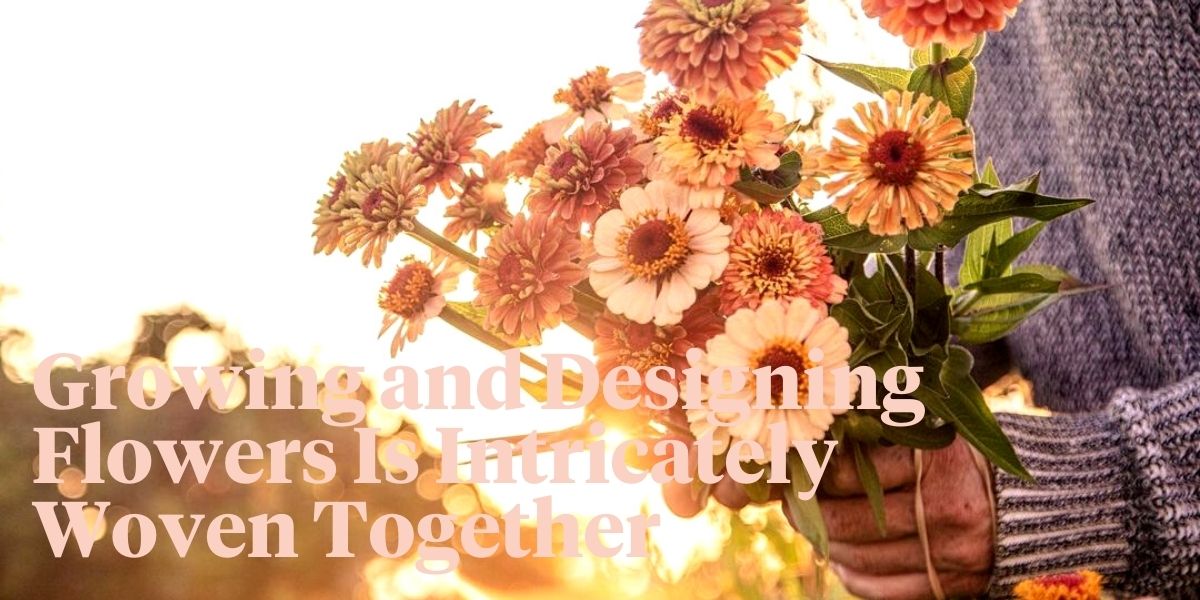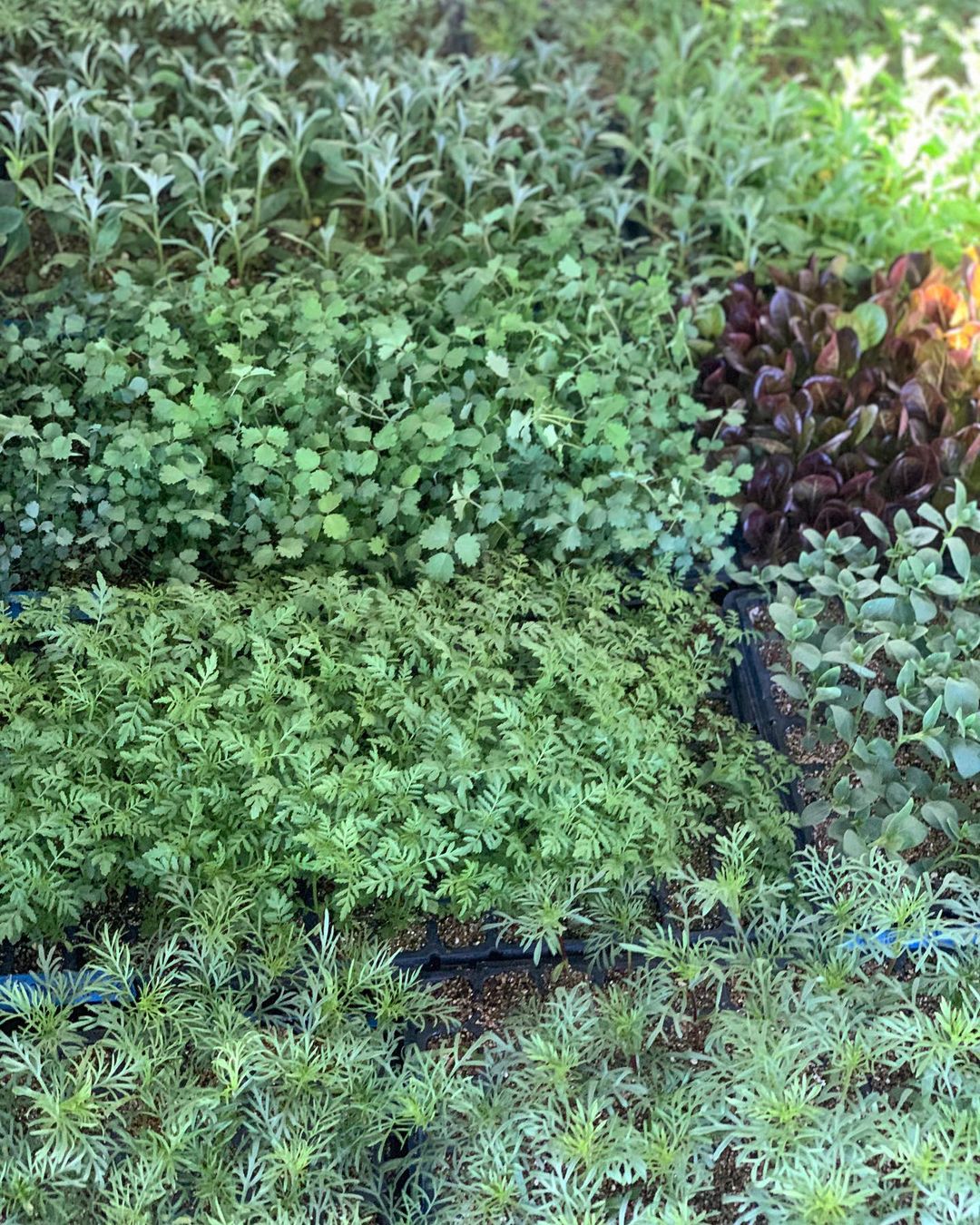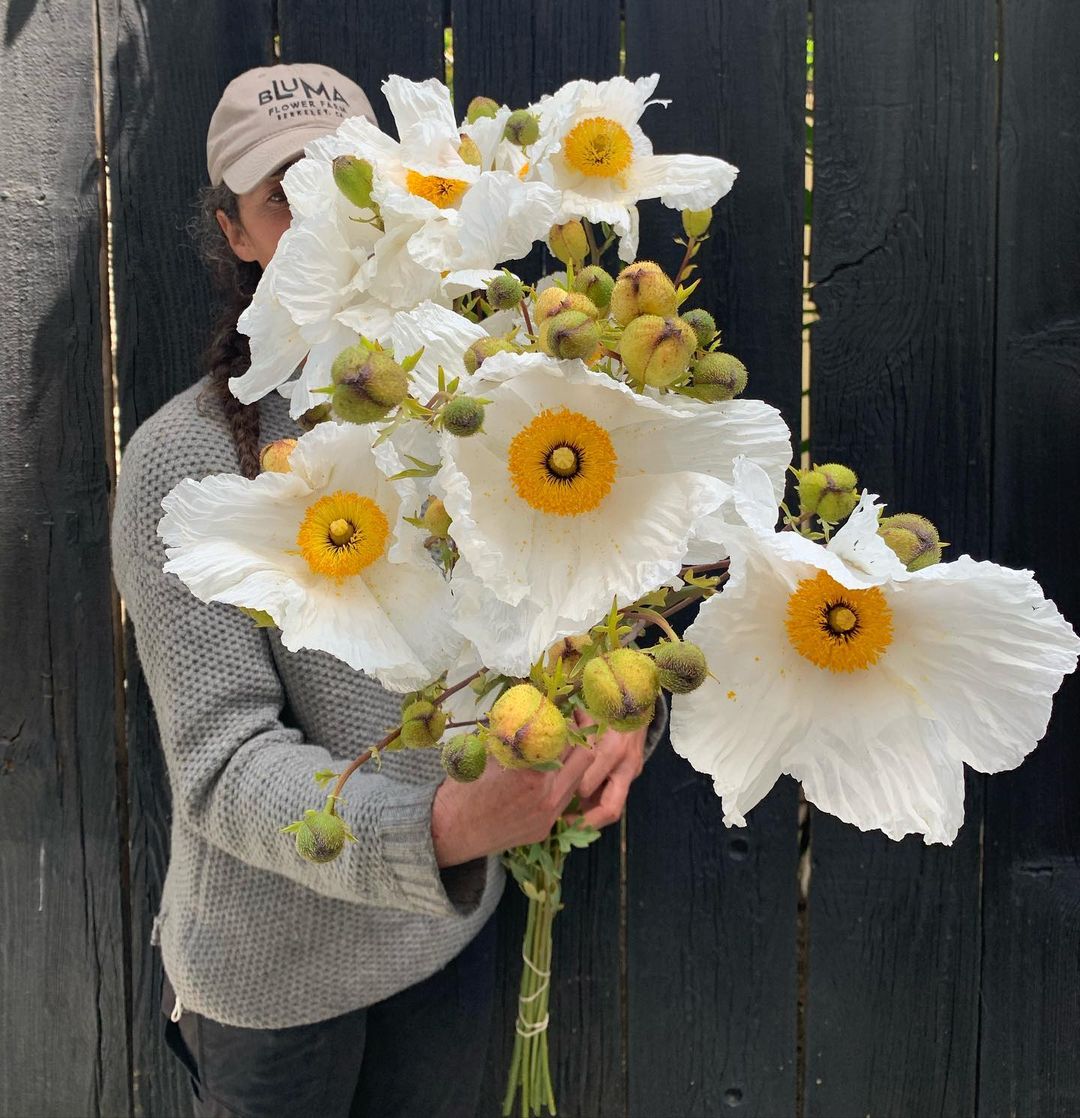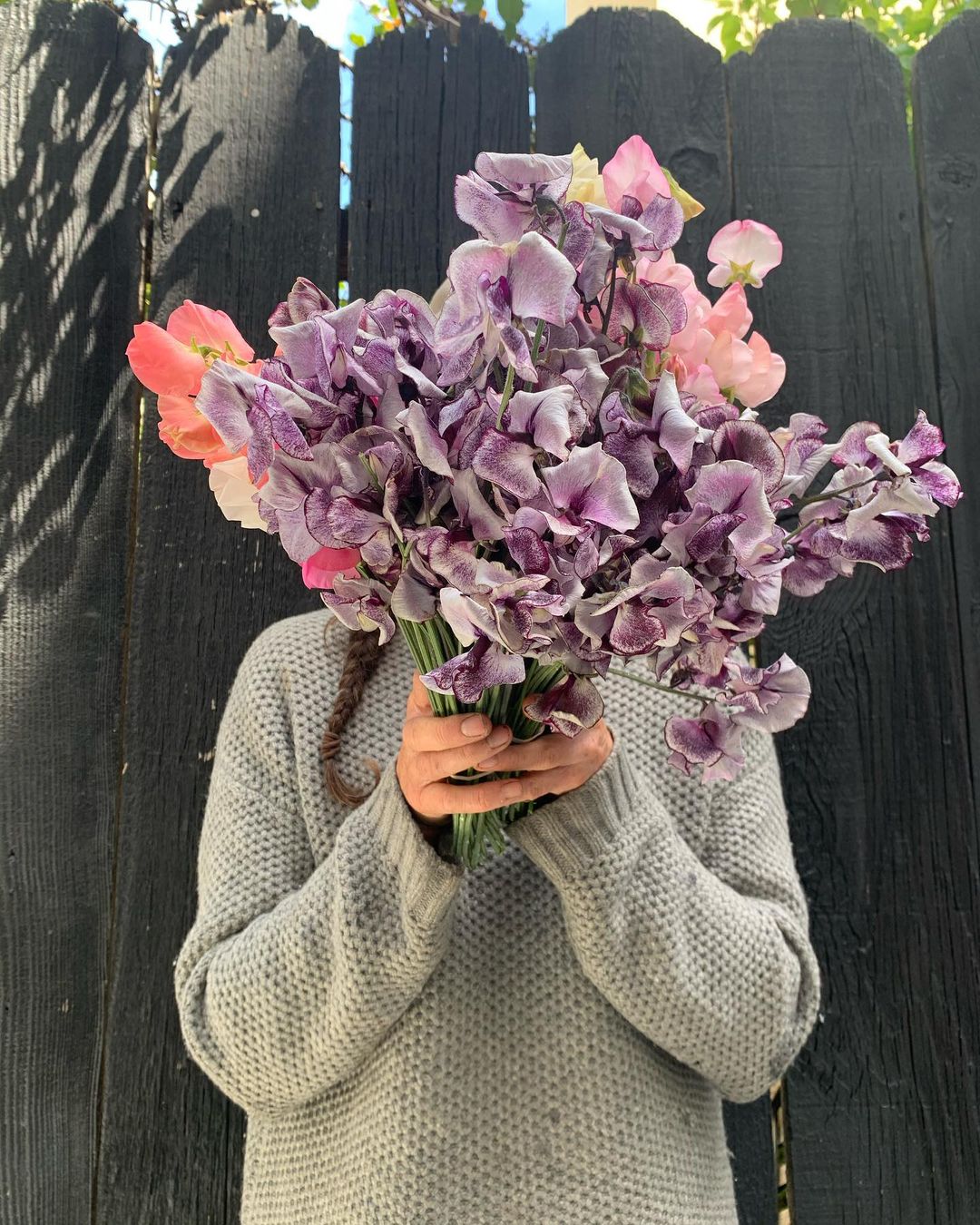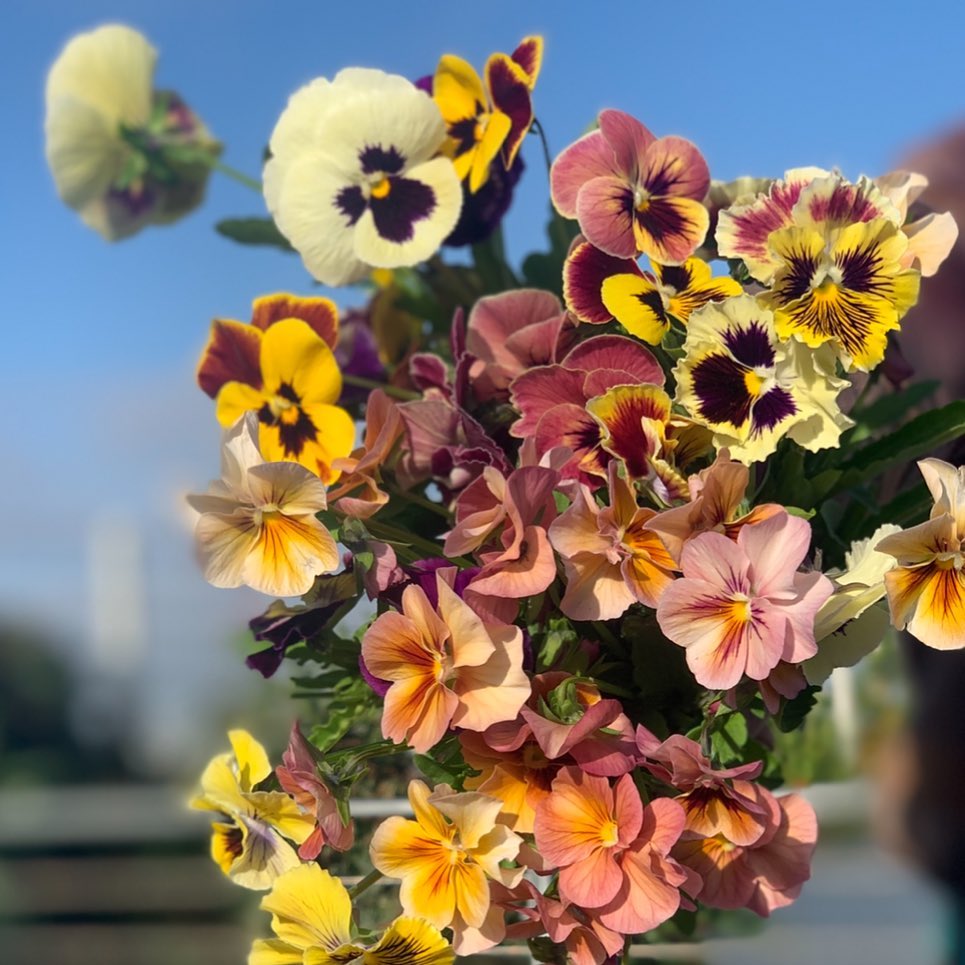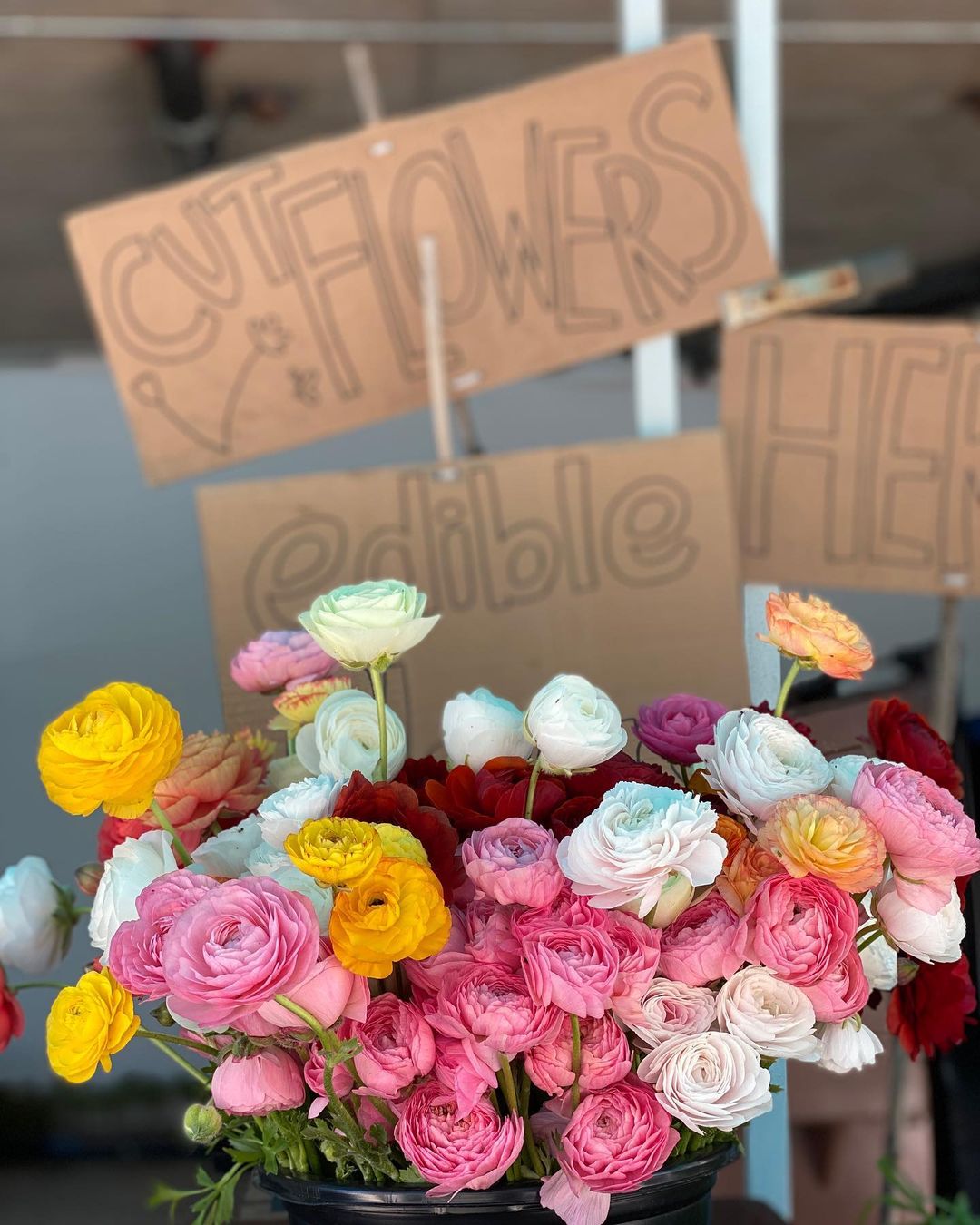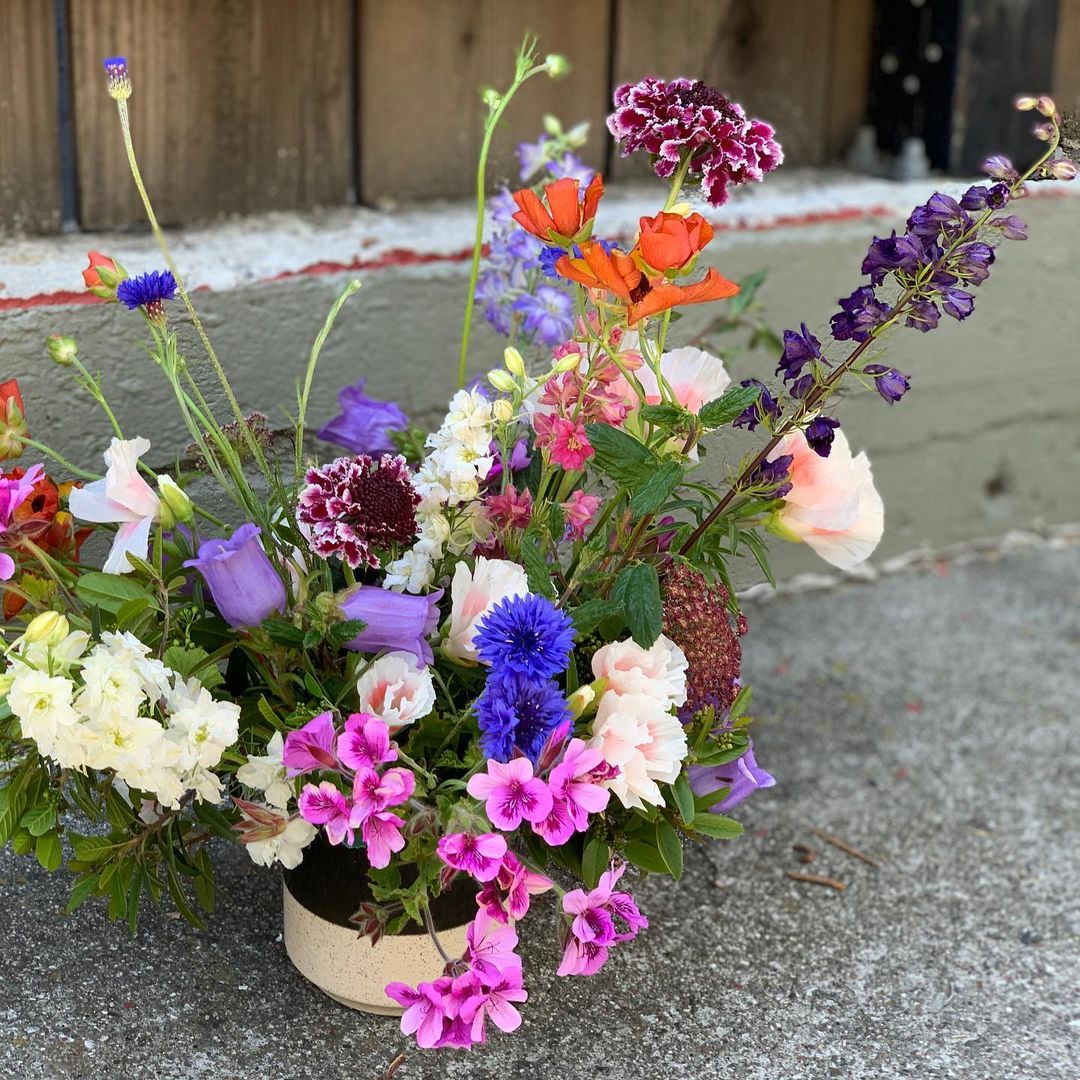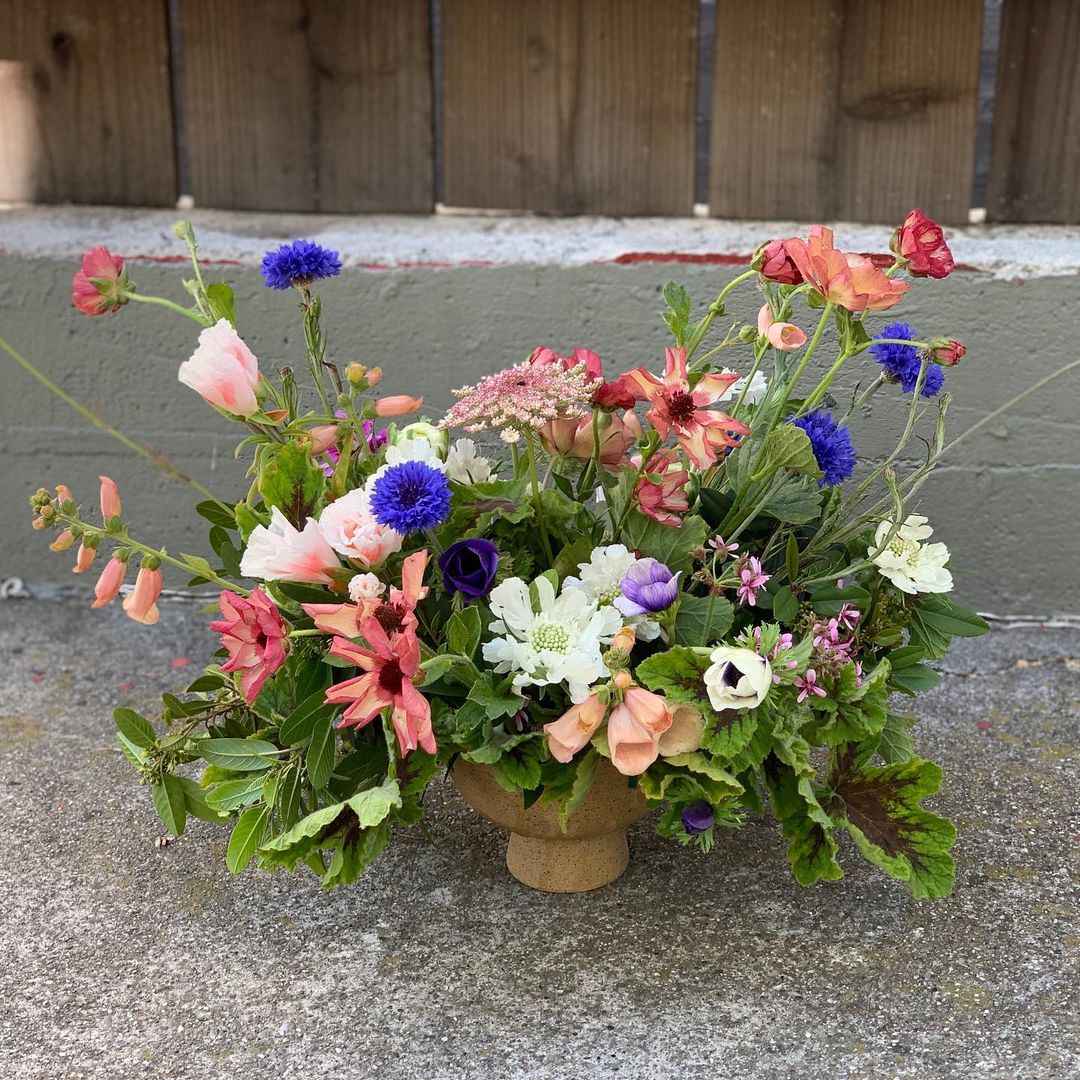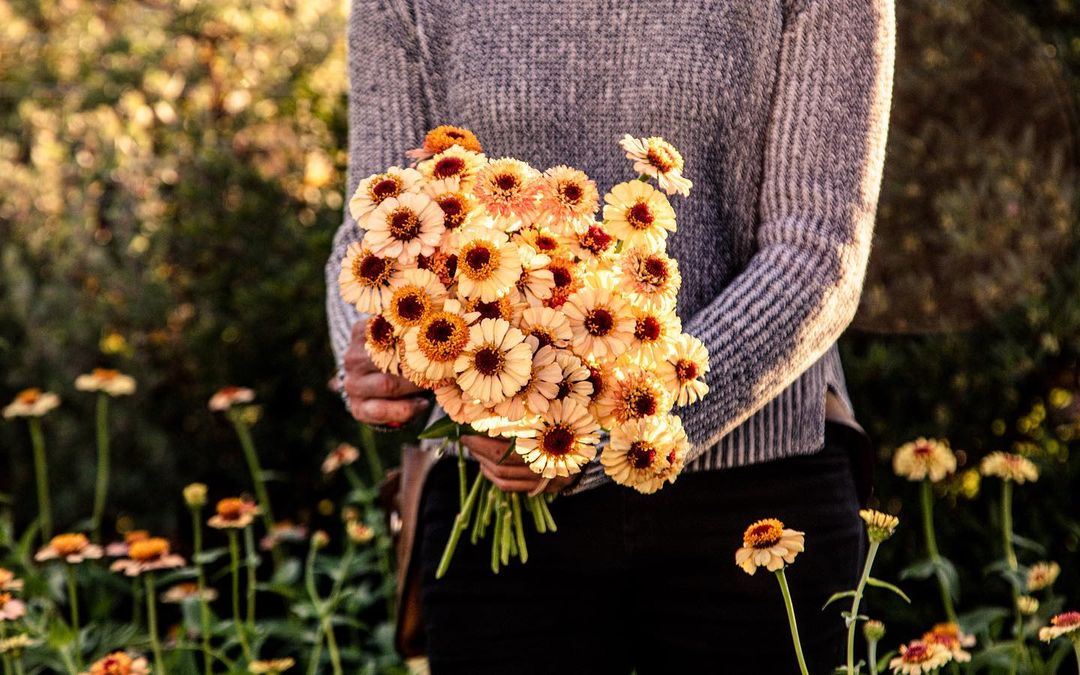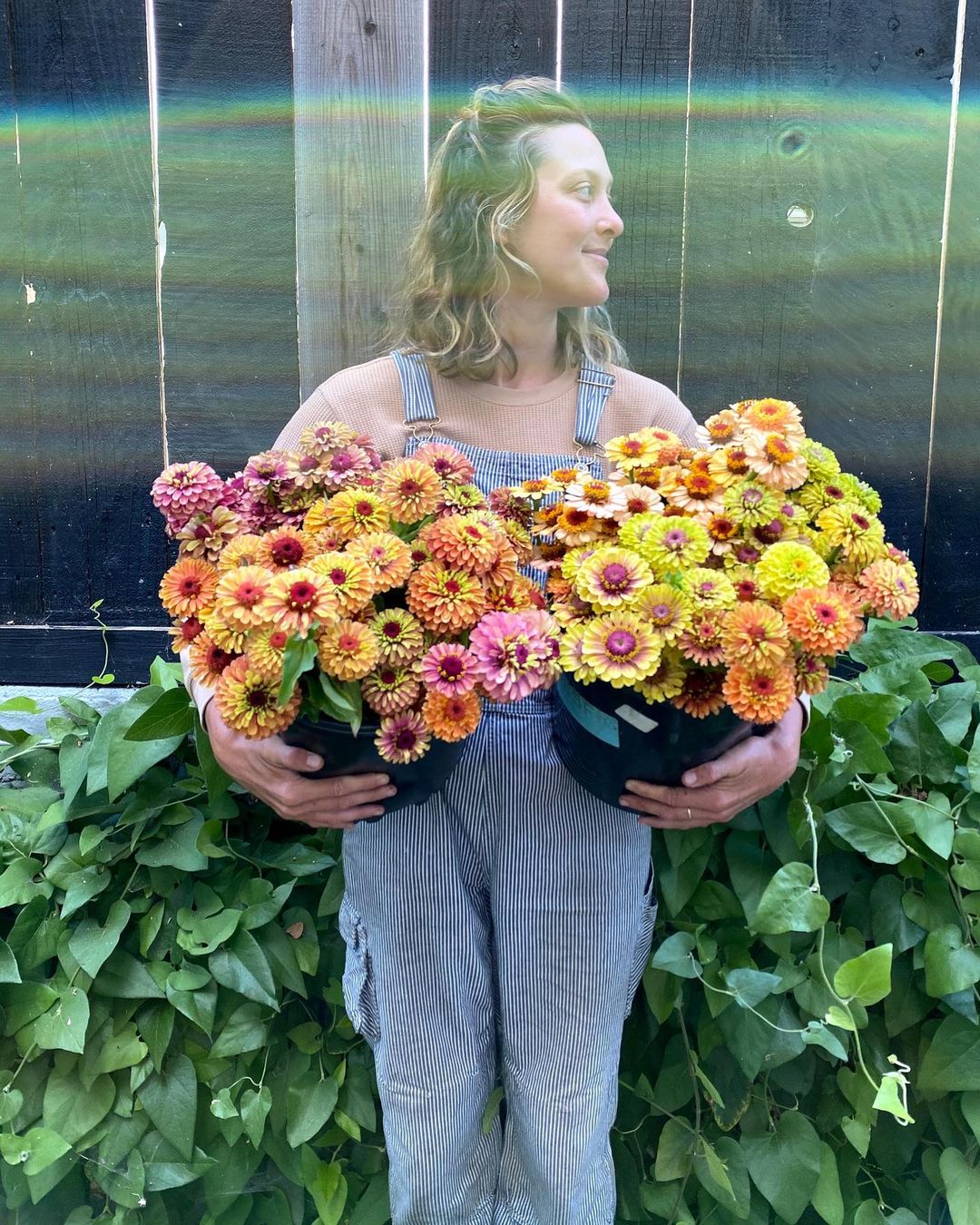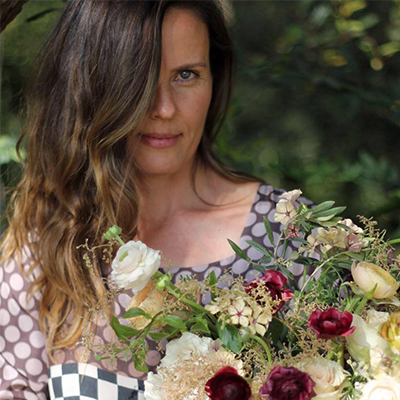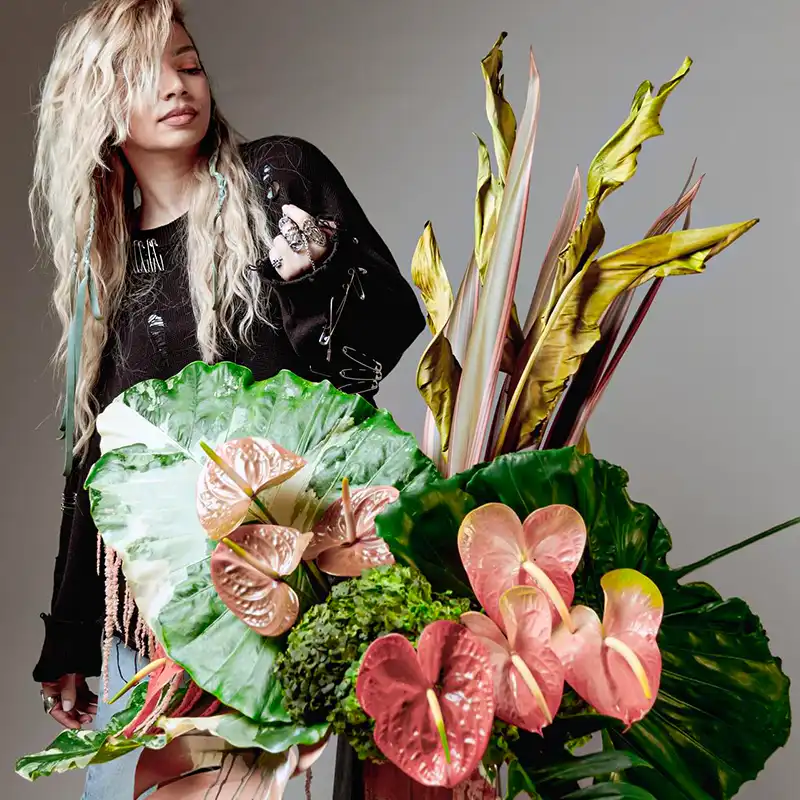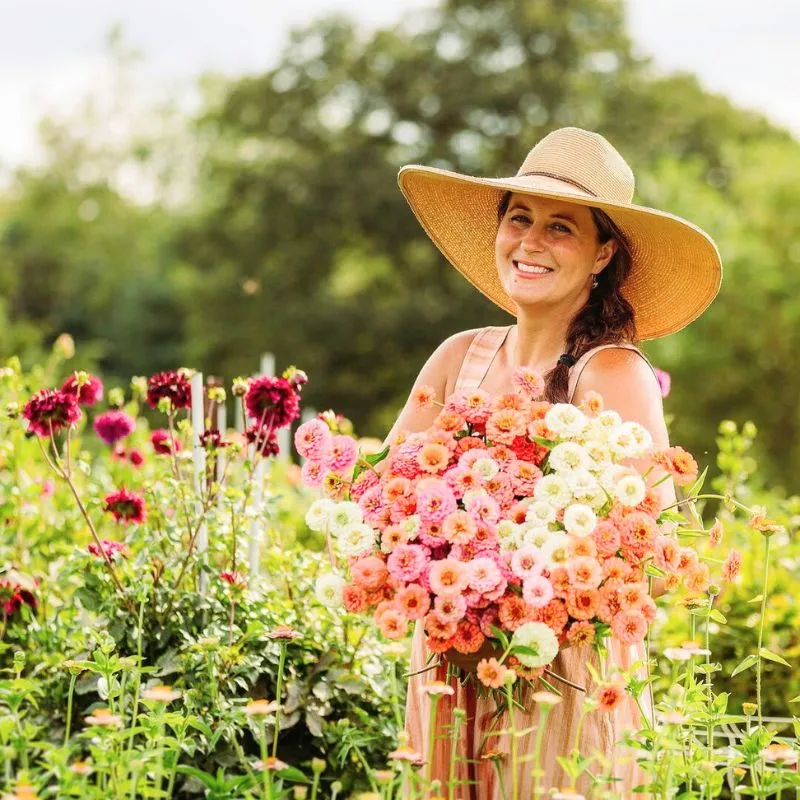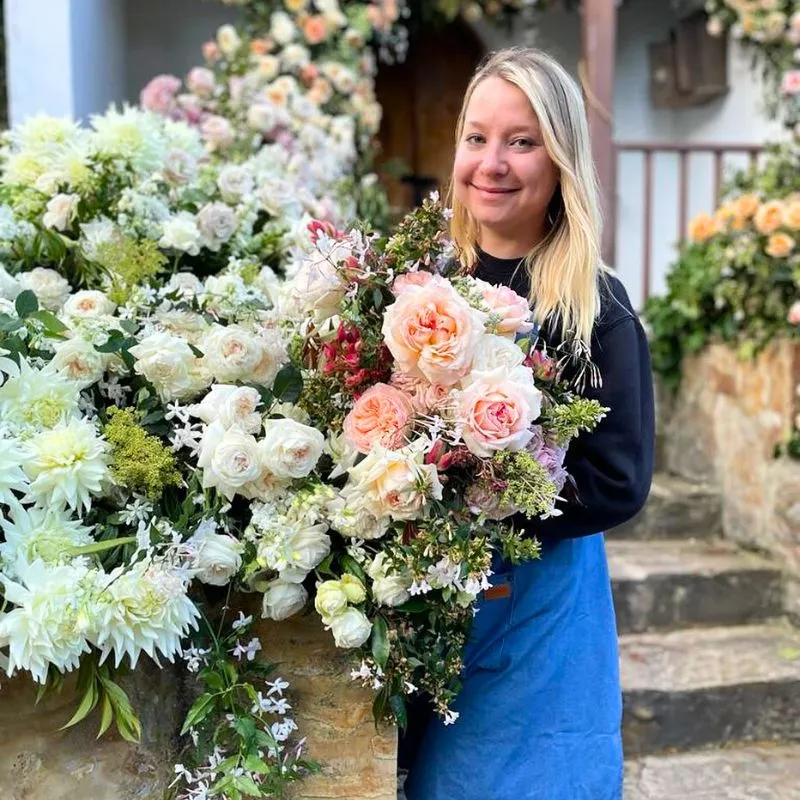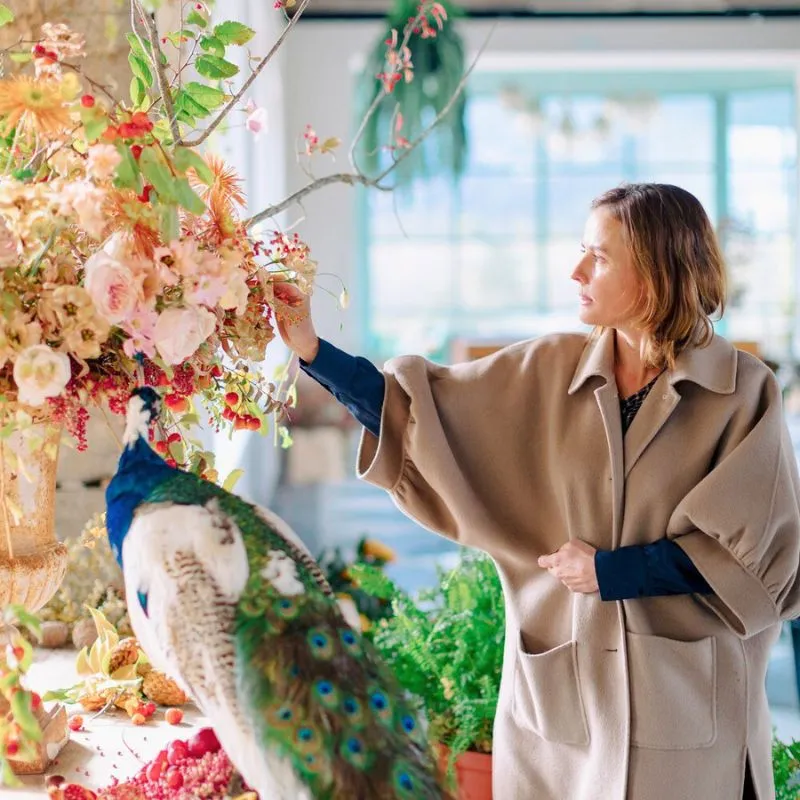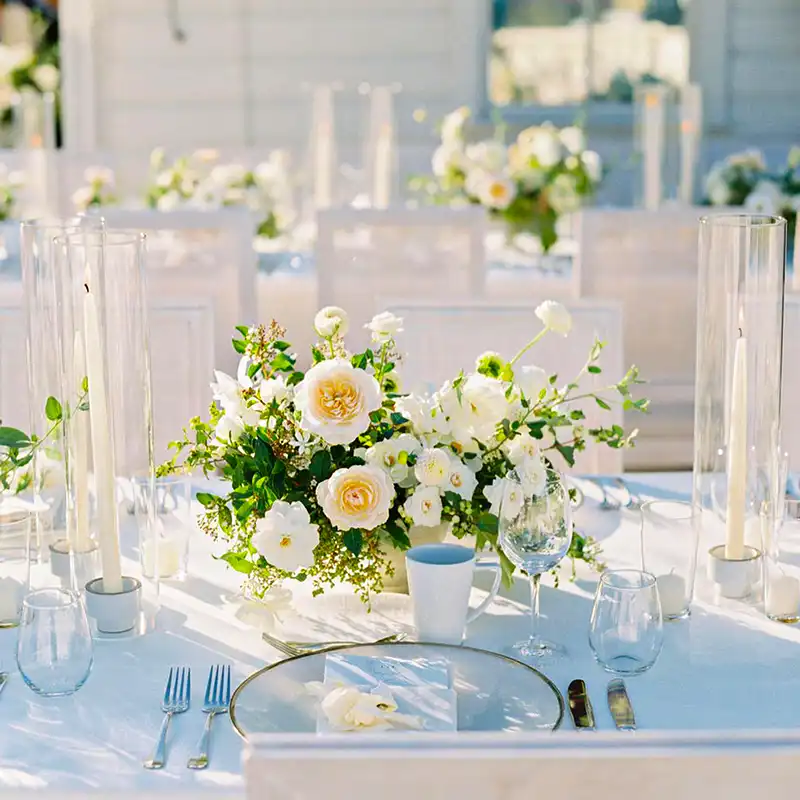The La Musa de Las Flores Growing and Designing Online School brings both disciplines of growing and designing together. We create a greater consciousness about the only way to go for floral design. This way is - according to the LMDF mindset - using local and seasonal flowers and in an ideal scenario having florists grow their own flowers.
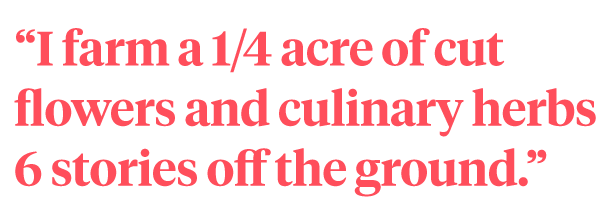
An Interview With Joanna of Bluma Flower Farm
I am very happy to have Joanna Letz, from
Bluma Farm, talking to us. When I first visited Joanna in Berkley I was really impressed by her flower farm on the rooftop of a residential building in the middle of Berkeley. I remember we parked the car and I thought I had the wrong address until I looked up to the sky and I saw greenery coming abundantly from one of the buildings and I couldn’t but smile about it.
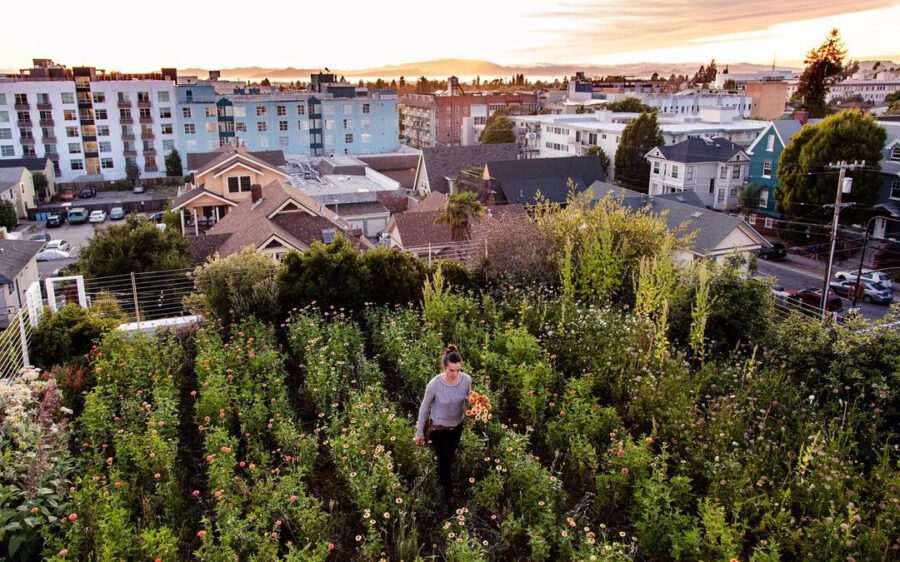
Joanna Letz at her rooftop flower farm
How many times we think we have to live in the countryside or have a good size garden or backyard to grow! But Joanna takes this myth down and she is a huge inspiration that really, you can grow flowers anywhere!
Can You Tell Us a Little Bit About Your Story With Flowers, How This Amazing Project Started?
"I began farming in 2008 and I’ve been doing it ever since. I started my farm and business in the fall of 2014 on 2 acres in Sunol. Sunol is 30 miles southeast of Berkeley.
I would drive an hour to my farm each way. I knew this was not sustainable in the long run. In 2018 I decided to start asking around if anyone knew of opportunities to move my farm closer to where I was living in Berkeley. Through my farm advisors, I was connected with Benjamin Fahrer who helped design and install the rooftop farm I now farm!
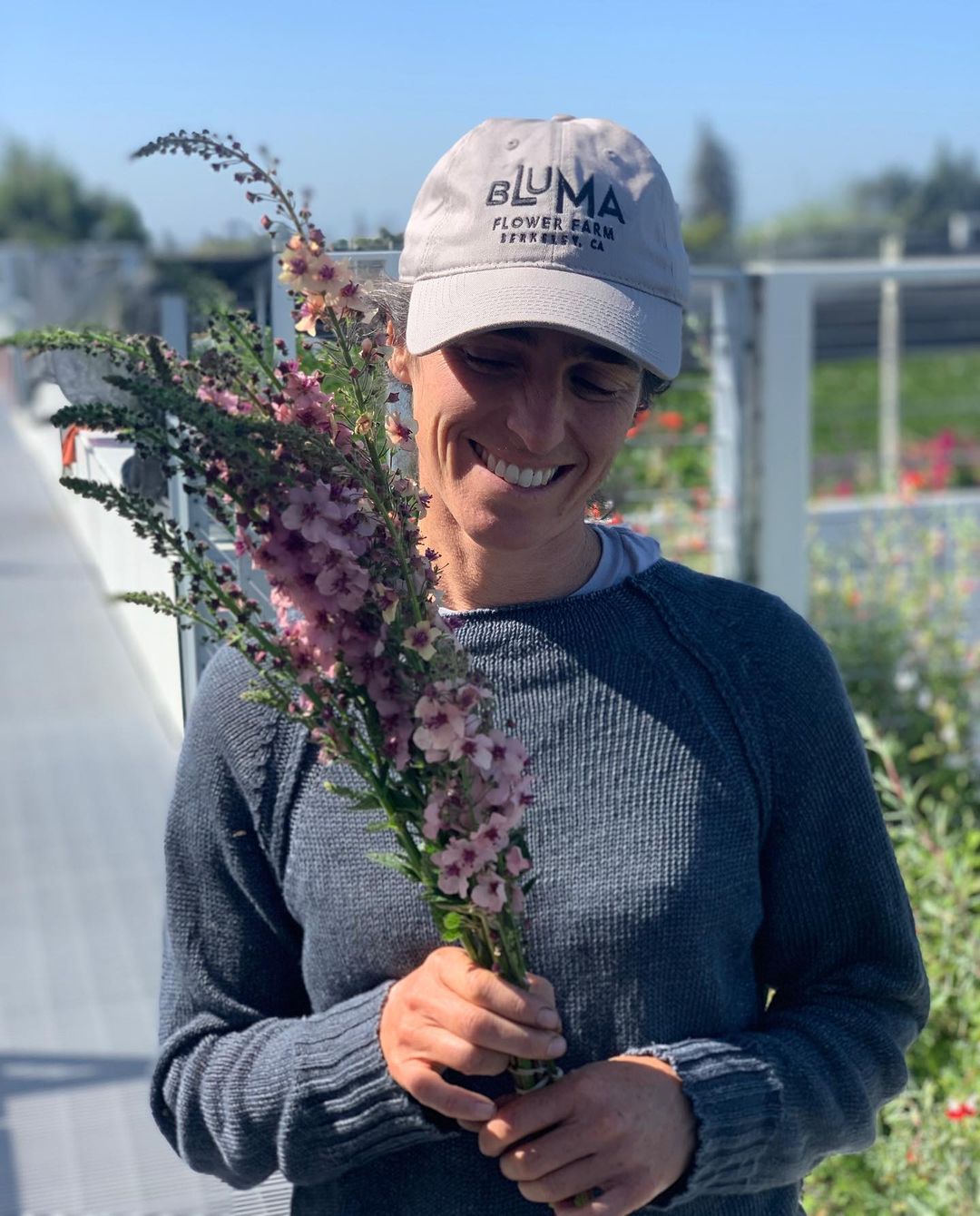
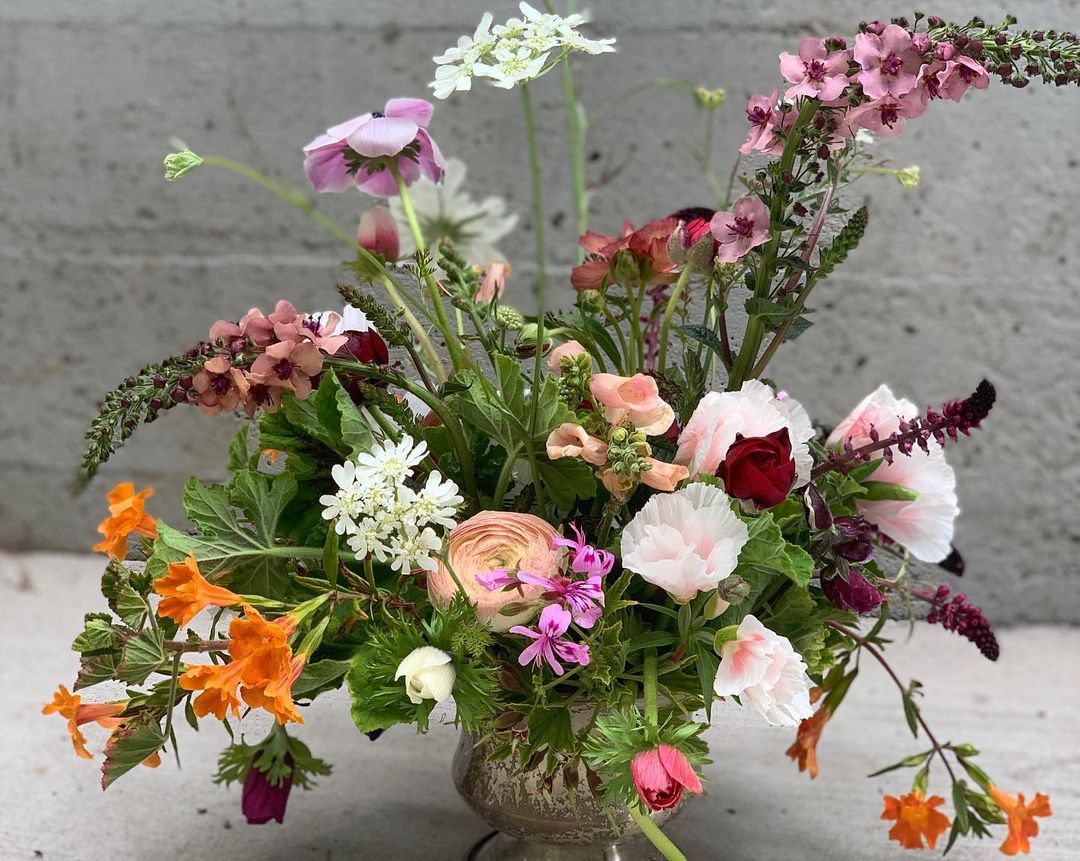
Fahrer was looking for someone to take over the operations. It was a perfect opportunity for me. Moving my operations was risky. I didn’t know how things would grow on the rooftop. But in fact, some flowers have grown better on the roof than they did on the ground! When I started, I didn’t have a lease until 6 months after I started farming the roof. It was worth taking all the risks because of the benefit of growing a few blocks from my house. I now farm a 1/4 acre of cut flowers and culinary herbs 6 stories off the ground."
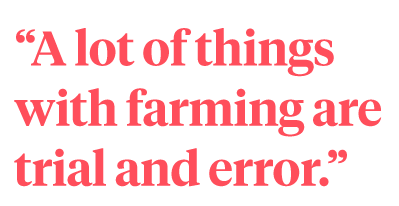
Can You Tell Us What Are the Difficulties of Growing in the Conditions You Grow?
"The logistics of growing on a rooftop can be cumbersome. Everything needs to go up and down the elevator. Occasionally the elevator will stop working which means we get some good exercise! When a crop is finished we take the plants out root and all and load them in the elevator on tarps. We load the plant debris into my van and take it to the city compost. The previous farmer turned some of the beds into compost piles. Those piles attracted rats and took out space that otherwise would be used for production, so we’ve opted to take everything off the roof when the plants are done.
One of the biggest challenges on the rooftop is irrigation. The soil is only 10” deep and needs to be able to drain easily. We have to water 2-3 times a day for 15 minutes at a time to account for this. There’s an automatic irrigation system that we can control, but there have been some issues with it.
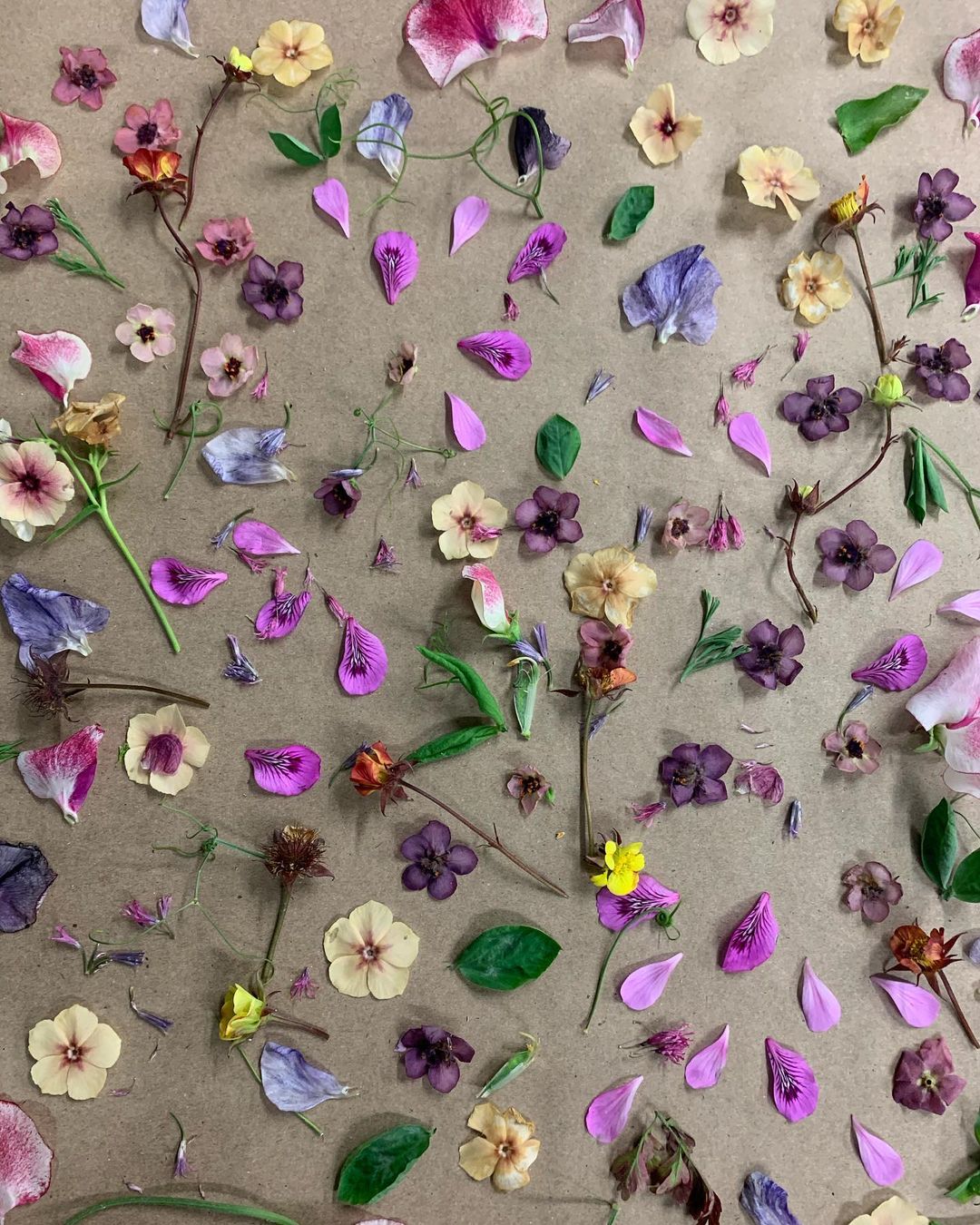
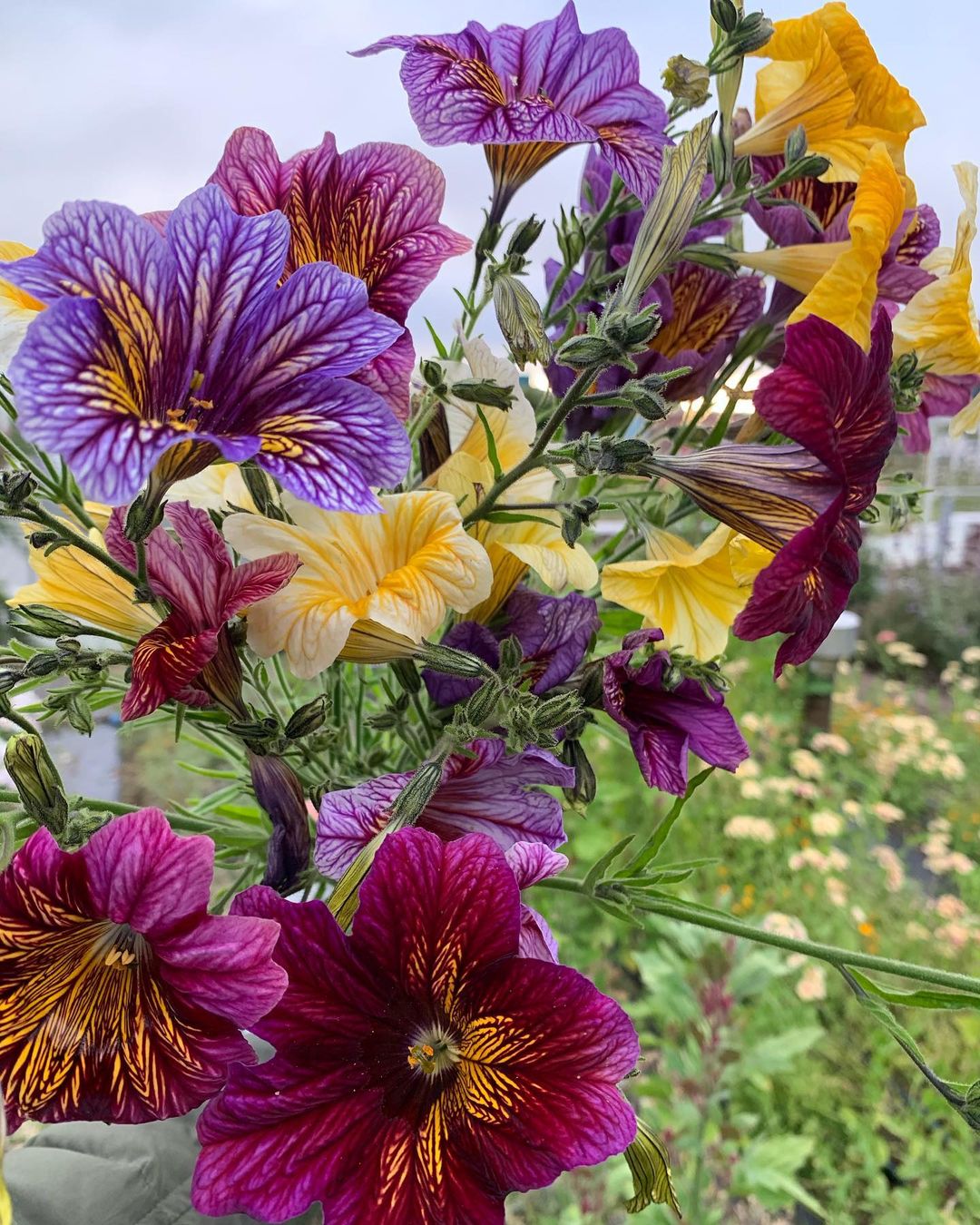
For organic farmers, one of the most important things is taking care of the soil. On a rooftop that’s a bit different. The soil is a “soil medium”, it’s more like container gardening. We add some soil mix every year to account for anything that was taken off the roof the previous year. The soil mix has some compost and biochar in it that adds nutrients. We also rely on a fertigation system that puts organic fertilizer through the irrigation lines. This way we make sure our crops have what they need. I haven’t seen any crop failures or serious issues with nutrient deficiency.
All in all the rooftop in Berkeley has been an ideal place to grow. The Bay area weather is perfect for flowers. With a reduced amount of acreage, I can focus production and get more flowers out per square foot than I would on a larger parcel on the ground. I miss growing on the ground and there are certain crops that would do better in a larger soil profile. We’ve been able to grow a lot in a small space 6 stories up! We also don’t have to worry about gophers."
I saw your seedlings growing in the basement of the building and your small studio with a cold room, bundles, and deliveries being prepared and it was amazing to see how you do so much in such a small space.
That for me - Gabriela - was a huge inspiration because I think growing from seeds can be frustrating and sometimes the success rate can be disappointing, but you manage to do it under lights in a basement!
What Could You Tell People About the Way You Treat Your Seeds and Make Them Grow so Well?
"A lot of things with farming are trial and error. As well, I ask a lot of questions to other farmers and I do my research. I’m familiar now with most of the seeds I grow and what they need to germinate well. Some seeds need darkness to germinate like larkspur and phlox. But a lot of flower seeds need to be “surface sown”. They need light to germinate. I’ve found using vermiculite to cover my seeds in the trays works better than covering with soil. The vermiculite has more nutrients and I think lets more light in than the soil would. We seed almost everything in plastic cell trays. Mostly I use a 98 cell pack tray.
A lot of growers will use smaller cells, like 128, or 200. We also check germination rates on the seed packs and often double or triple seed each cell to make sure we get a good stand of plants. I would rather use extra seeds than not have the plants I want. Certain seeds also like to be soaked overnight in water, for example, sweet pea seed. It’s also important to keep your seed in a dry and cool place so they last longer.
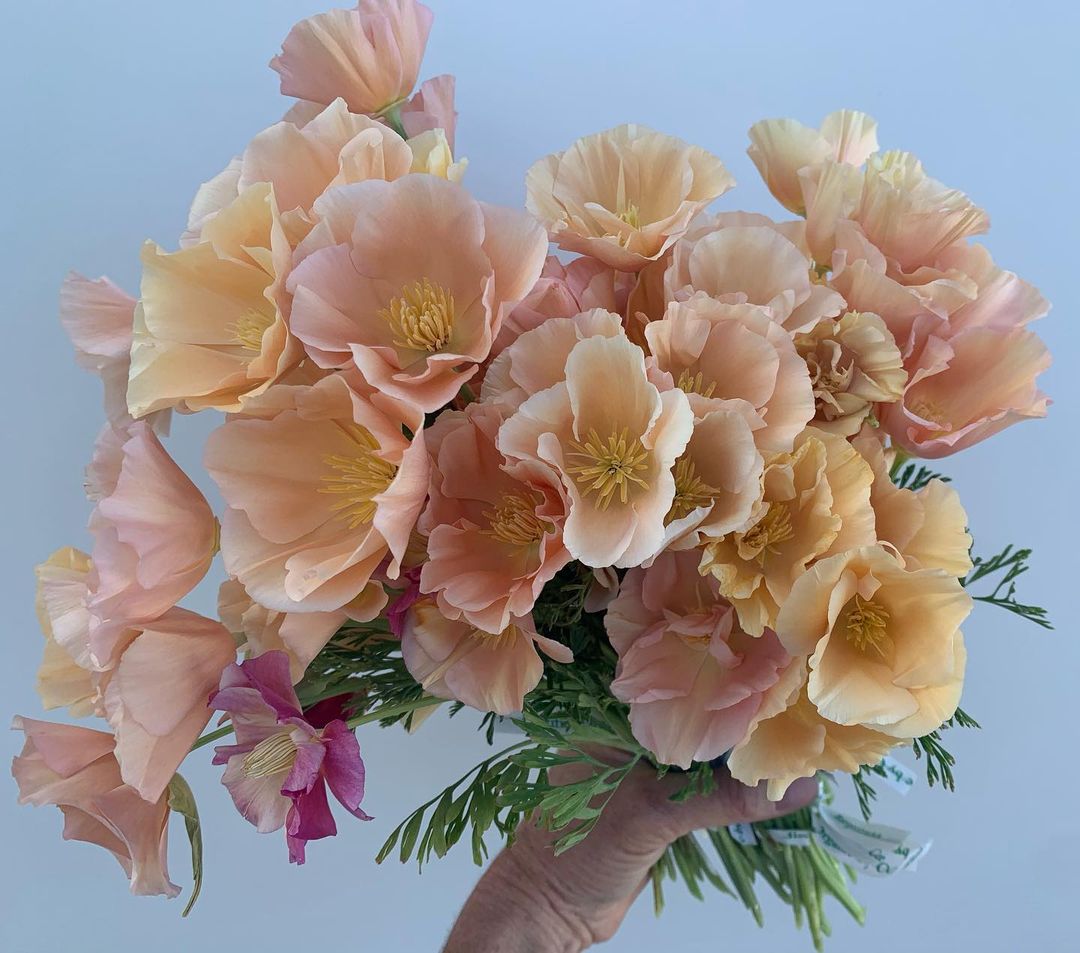
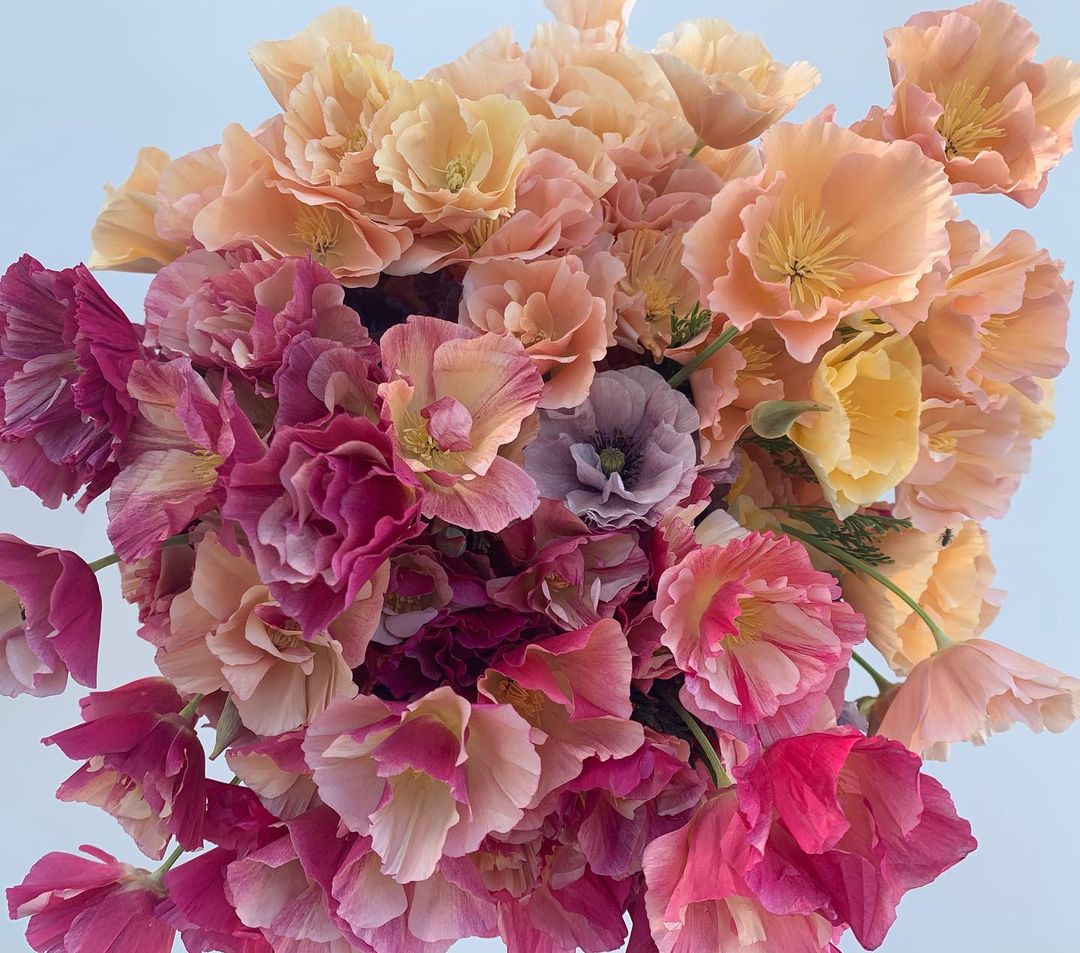
This year I sowed 10 flats of strawflower and only had a 15% germ rate. I realized strawflower seed doesn’t last long! My seed was 4 years I won’t make that mistake again. Also germinating seeds need to be kept moist but not too wet or they will rot. Under lights we use bottom trays to keep the seeds moist. We have had some issues with rot using this system, but for the most part it works. From what I’ve noticed there isn’t much difference between our plants that start under lights inside and our plants that are in our greenhouse. In our greenhouse we also have an automatic overhead watering system. Sometimes when watering by hand you need to be careful that you don’t wash away the seed, especially when you are sowing seeds so close to the surface, like a lot of flower seeds are. Some seeds also take a long time to germinate. Knowing this helps. Love in a puff seed can take a long time but eventually does come up. I also usually sow more flats than we need so I am not short on anything."
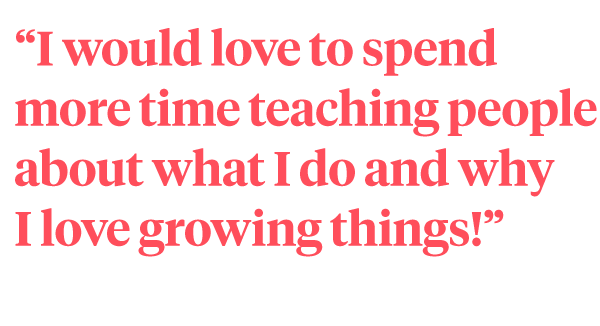
How Many Varieties Do You Grow in Your Rooftop?
"I grow about 40-50 different cut flowers. The number has gone up and down over the years. Every year I trial a few new things. We also have hedgerow plantings that are mostly native California perennials. The previous farmer planted most of those, we also cut from them for florists and for our own events.
The crops we grow the most of are: zinnias, cosmos, dahlias, chocolate cosmos. I enjoy growing these crops and they produce a lot of blooms. I will likely continue to tweak our crop plan according to what florists, grocery stores, and weddings want. Also, our chocolate cosmos love the rooftop. I’m not quite sure what it is, but they are super prolific producers on the roof."
Is It Enough For You To Cover Your Events and Sell To Other Florists?
"We can produce a lot of flowers from the rooftop. There’s also a huge amount of labor involved in growing and harvesting and getting our flowers to our customers or our events. I’ve been able to make it work this far. This year I have 2 full-time seasonal employees. Last season, my first year on the rooftop and it was my best season yet! This year it’s been challenging to figure out the sales and not have the added value of our events.
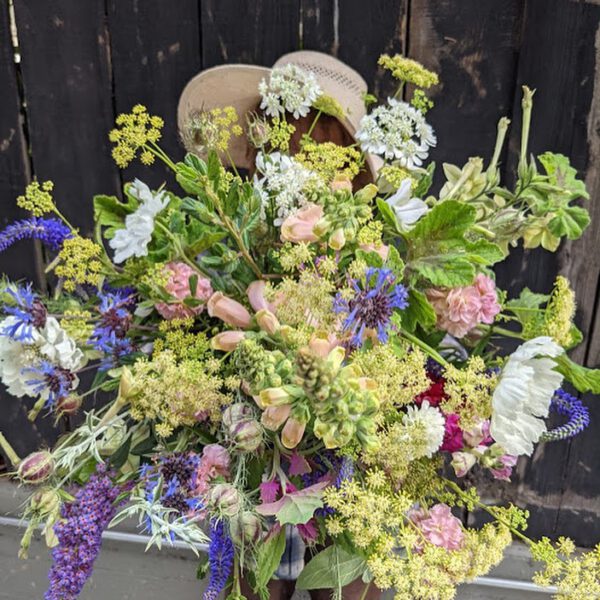
I’m still figuring out the flow of the rooftop and whether or not I will grow year-round. Mostly we have flowers from May until November. It’s been important to have our own events and also sell flowers to grocery stores and florists. We would need a lot of event work to use all the flowers we grow. In the long run, I hope my farm can be a teaching farm and a place for community members to learn about agriculture. I currently spend a lot of time finding places for all our flowers to go, and all the logistics behind flower sales. I would love to spend more time teaching people about what I do and why I love growing things!"
How Do You Feel About Designing Your Arrangements With Your Own Grown Flowers? Do You Think There Is a Difference?
"Everything we do is based on what we grow and how we grow. That’s what makes Bluma unique.
Our flowers last longer and we get to use and grow interesting things. Sometimes I might find a weed that I realize would be great in an arrangement or I get a last-minute order and I can go up to the rooftop and harvest. Everything happens right at our farm. I love flowers and farming. For me, they go hand in hand. I wouldn’t be doing one without the other."
What Is That You Value the Most About Growing and Designing Together for Your Business?
"Growing and designing flowers is intricately woven together. The arrangements we create tell the story of the farm and what’s happening on the farm and the seasonality of it all.
When people come to visit the farm they can also see for themselves. You can see how we have a lot of forage for bees and other insects and create habitats for birds. I aspire to have my farm be a “full circle farm”, where we can sustain our farm on the materials and inputs we can create or get locally. We can’t totally do this as I am reliant on organic fertilizers and on seed companies. But we can grow most of our plants from seed, and we harvest and design with the crops we grow.
I would love for most of our sales to be for pickup at the farm or for delivery within a 5-mile radius. In that way we would not only be super-local but could be a fixture in the community, a farm people intimately know about and get to experience. As it is our sales are currently within 10 miles of the farm, not bad!"
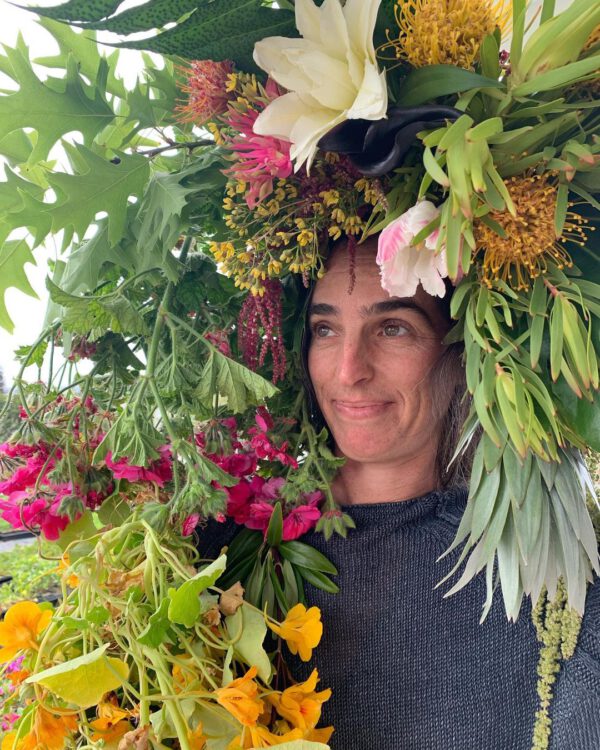
Joanna and her flowers
Follow Joanna for Huge Inspiration
You are a huge inspiration for me Joanna, and I am sure people will feel very inspired by what you are doing!








